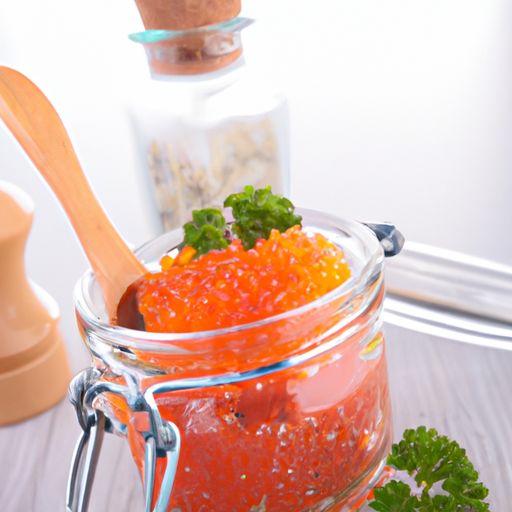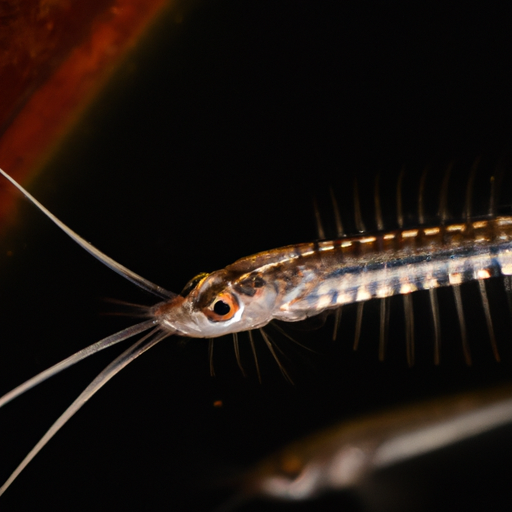When it comes to luxury food items, caviar beluga is undoubtedly one of the most sought-after delicacies in the world. This prized roe is harvested from the beluga sturgeon, a critically endangered species that is native to the Caspian Sea. Due to its rarity and high demand, caviar beluga is also one of the most expensive foods on the planet.
If you’re a caviar enthusiast, you know that there are several types of caviar available on the market. However, caviar beluga is widely regarded as the king of caviar due to its large size, delicate texture, and buttery flavor. In this article, we’ll take a closer look at caviar beluga and everything you need to know about this luxurious delicacy.
What is Caviar Beluga?
Caviar beluga is the roe (eggs) of the beluga sturgeon (Huso huso), a species of fish that can weigh up to 1,500 kg and live up to 100 years. The beluga sturgeon is native to the Caspian Sea, which is bordered by Russia, Kazakhstan, Turkmenistan, Iran, and Azerbaijan. The fish is known for its large size, slow growth, and late maturity, which makes it vulnerable to overfishing and habitat loss.
Beluga sturgeon can take up to 20 years to reach maturity and produce eggs, which are harvested by expert fishers. The eggs are then carefully processed and graded based on their size, color, and texture. Caviar beluga is typically light to dark grey in color, with large, soft eggs that melt in your mouth. The flavor is often described as buttery, nutty, and slightly sweet, with a delicate texture that is unmatched by other types of caviar.
The History of Caviar Beluga
Caviar has been consumed by humans for thousands of years, dating back to ancient Persia (modern-day Iran) and the Roman Empire. However, the consumption of caviar beluga specifically can be traced back to the 16th century, when it was served to Russian royalty and aristocrats. At the time, caviar beluga was so abundant in the Caspian Sea that it was considered a common food item for locals.
However, as demand for caviar beluga grew around the world, overfishing and habitat loss led to a sharp decline in the beluga sturgeon population. In 1998, the species was listed as critically endangered by the International Union for Conservation of Nature (IUCN), and a ban was placed on the international trade of beluga caviar.
Today, caviar beluga is still considered a luxury food item, with a high price tag to match. However, sustainable farming practices and conservation efforts have helped to revive the beluga sturgeon population, making it possible to enjoy this delicacy without contributing to its decline.
How to Enjoy Caviar Beluga
When it comes to serving caviar beluga, simplicity is key. The delicate flavor and texture of the roe can easily be overwhelmed by strong flavors or heavy accompaniments. Here are a few tips for enjoying caviar beluga:
- Serve the caviar chilled, but not frozen.
- Use a mother-of-pearl spoon to avoid any metallic flavors.
- Pair the caviar with plain crackers or bread, such as blinis or toast points.
- Offer accompaniments such as crème fraîche, chopped egg, or minced onion on the side.
- Pair the caviar with a dry white wine or champagne to complement the delicate flavors.
Where to Buy Caviar Beluga
If you’re looking to purchase caviar beluga, it’s important to do your research and find a reputable supplier. Due to its high value and rarity, caviar beluga is often subject to fraud and mislabeling. Look for suppliers who are transparent about their sourcing and processing methods, and who can provide documentation to verify the authenticity of their products.
One such supplier in Denmark is Caviarpris.dk, which offers a wide selection of high-quality caviar products, including caviar beluga. Their caviar is sustainably sourced and carefully processed to ensure the best possible flavor and texture. Visit their website to learn more and order your own caviar beluga today!
The Bottom Line
Caviar beluga is a true luxury delicacy that has been enjoyed by royalty, aristocrats, and food enthusiasts for centuries. Its delicate texture, buttery flavor, and rarity make it one of the most sought-after foods in the world. However, it’s important to be mindful of the impact that our consumption can have on the beluga sturgeon population. By choosing sustainably sourced caviar products and supporting conservation efforts, we can help to ensure that future generations can also enjoy this exquisite delicacy.



